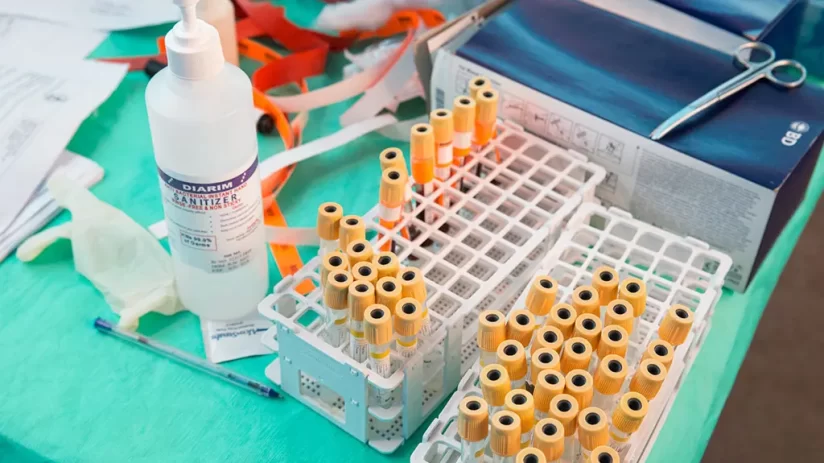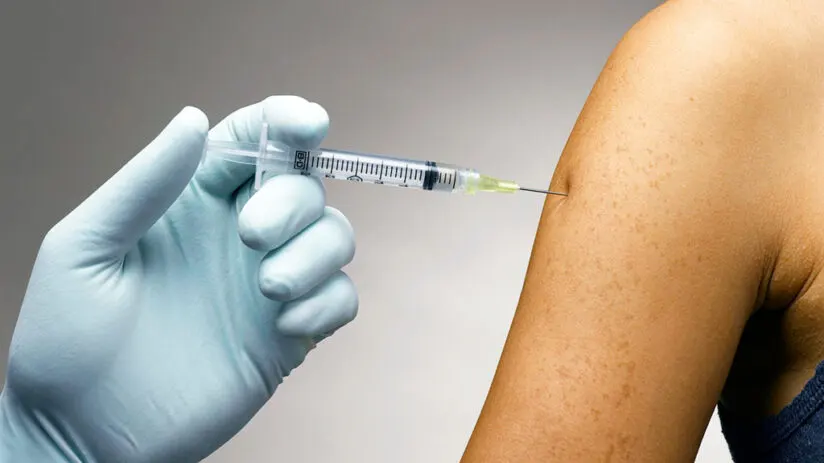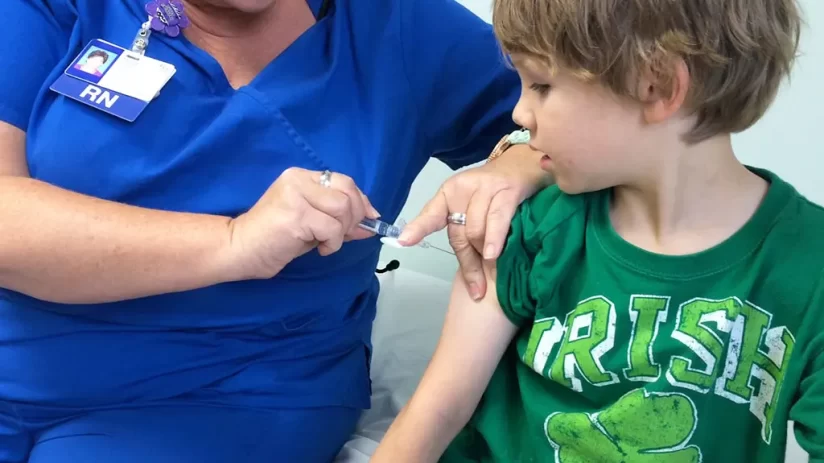Peru is a popular destination with lovely places and several different climate zones. Before starting any travel, you must inform yourself about the vaccination requirements of the country you will visit. Otherwise, you might experience an unpleasant or even dangerous shock.
Peru does not require specific vaccinations or a vaccination certificate to enter. However, a few highly recommended and optional vaccinations should be considered before your trip. So, together with Machu Travel Peru, we wrote an article on immunizations for travel to Peru.
Peru is a country with lovely places and several different climate zones. Before starting any travel, you must inform yourself about the vaccination requirements of the country you will visit. Otherwise, you might experience an unpleasant or even dangerous surprise. Here are some tips for healthy travel in Peru.
Everything you need to know about the vaccinations for travel to Peru
- Highly recommended vaccines
- Recommended vaccines
- Routine vaccinations
- Malaria, Zeke, and Dengue fever
HIGHLY RECOMMENDED VACCINES

HEPATITIS A
Hepatitis A is a severe liver disease spread through contaminated food and water. Since the water in Peru is unsafe to drink from the tap, there is a high risk of getting infected.
Also, if you are an adventurous eater, you might want to consider this vaccine. It needs to be administered several weeks before you travel. Hepatitis A can be transmitted through contaminated food and drinking water.
You may be surprised that we hear about these diseases even in developed countries. And even though people usually recover from this disease, it is advisable to get vaccinated and not go through bad times. To visit Peru with all the necessary items, you should consider these vaccines to travel safely and enjoy the tourist areas with peace of mind.
TYPHOID
This bacterial infection can be dangerous and causes high fever, diarrhea, and vomiting. Like hepatitis A, it is transmitted by contaminated water and food. Be careful when planning an adventure trip to Peru, including the Inca Trail. When you visit rural areas or unsanitary places, you have a high risk of getting typhoid fever.
This also applies to anyone who loves to try street food. It is paramount to constantly wash and disinfect your hands after using the bathroom and before eating. Drink properly boiled or bottled water, take a good water filter, and avoid uncooked and unpeeled vegetables and fruits.
RECOMMENDED VACCINES

HEPATITIS B
Before you travel, check if you need a Hepatitis B vaccine. It’s best to talk to your GP about this. Travelers exposed to blood or body fluids should highly consider this recommendation. So, if you are promiscuous in your relationships, getting vaccinated would be a good idea.
You can get Hepatitis B through an exchange of blood, body fluids, and contaminated needles. However, the risk is usually not very high. It can increase if you have unprotected sex or many different partners. It can also rise if you inject drugs, have a medical procedure, or get a tattoo or piercing.
Sometimes, you can get a Hepatitis B shot simultaneously with the Hepatitis A shot. However, the Hepatitis A shot must be given weeks or months before. If you want to visit Machu Picchu, getting vaccinated with this injection may not be necessary. But it is better to consult with your doctor.
RABIES
Rabies is a viral disease transmitted through bites or scratches from infected animals. If you plan on going to remote areas with lots of wildlife or are often in contact with animals, it is recommended that you get a rabies shot.
This is because rabies is spread by the infected animal’s saliva that comes in contact with your blood through a bite or scratch. The first vaccination usually consists of 3 shots in several weeks. While you will unlikely have this experience, the rabies vaccine is an excellent way to prevent it. And if you plan to visit your doctor, you could kill two birds with one stone.
YELLOW FEVER
Yellow fever endemic vaccination is recommended for people planning on going to the Amazon in Peru, such as Loreto and Madre de Dios, among others (below 2,300 m / 7,545 ft., which applies to the eastern side of the Andes or high-altitude cities). If you plan to travel to more countries in South America, learn about each country’s yellow fever rules.
For example, you need proof of yellow fever vaccination to enter Bolivia from Peru. You can get it ten days in advance.
This is very good if you seek immunization forms to travel to Peru. A mosquito spreads yellow fever, so it must be blocked by wearing long clothes and using a solid, dewy-based insect repellent. If you want to enjoy tourism in Peru, it is a good idea to consult your family doctor and avoid health risks.
ROUTINE VACCINATIONS

Routine shots are the kind of shots everyone should take naturally, whether they are planning to travel abroad or stay at home.
The Centers for Disease Control (CDC) recommends that you have your routine vaccinations up to date for all those travelers health. You will often have received these vaccinations as a child, but a booster shot before your trip is always good. Before your trip to Peru, get the best travel vaccines. It would be best if you also got these routine shots: Measles-mumps-rubella vaccine (MMR), Diphtheria-tetanus-pertussis vaccine, Chickenpox vaccine (Varicella) Polio vaccine, Yearly flu shot.
MALARIA, ZIKA, AND DENGUE FEVER

MALARIA
Unfortunately, there has been no vaccination for malaria so far. If you go to jungle areas and places below 2,000 m/6,562 ft, take some antimalarial medication with you.
Mosquitoes also spread malaria, so it is best to prevent getting bitten. Consider wearing long clothes and using a robust, dewy-based insect repellent, especially during summer. If you have plans to visit the jungle zone, it is a good idea to be prepared.
ZIKA
Biodiversity in Peru, it is not surprising that many mosquitoes are around. Zika, like Malaria, is spread by mosquitoes that bite during the day and night. It is dangerous for pregnant women because they can pass the disease to their baby. This can put the baby at risk for some birth defects. Common symptoms are fever, headache, red eyes, muscle pain, joint pain, and rash.
There is no vaccination or medicine for Zika, either. It is not yet prevalent in Peru, but cases have been documented. Please get in touch with your doctor for more specific information. Stick to the same preventions to avoid Malaria.
DENGUE FEVER
It is a viral disease spread by mosquitoes. It happens in subtropical and tropical areas.
The disease causes high fever, body pain, and a rash. People have reported cases that Peru includes. Since no medicine or vaccine exists, you should use a robust and dewy insect repellent to prevent bites.
“VACCINES ARE SAFE, EFFECTIVE, AND LIFESAVING”
We worked with experts from Machu Travel Peru. We shared essential tips about immunizations and vaccines needed for Peru. However, as we always mentioned, you must remember that these are only suggestions. We have no accurate say in medical matters or must pay medical evacuation insurance.
It is highly recommended that you consult your family doctor about these issues and travel health. But if you want to ask about our different routes, you can talk to our qualified advisors. With our years of experience, we know how to organize tailor-made trips.
We look forward to visit soon!
It is highly recommended that you consult your family doctor about these issues and travel health. But if you want to ask about our different routes, you can talk to our qualified advisors. With our years of experience, we know how to organize tailor-made trips. We look forward to your visit soon!
